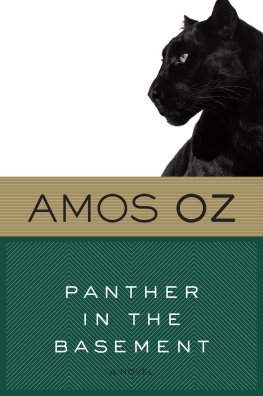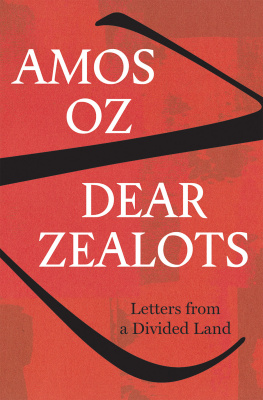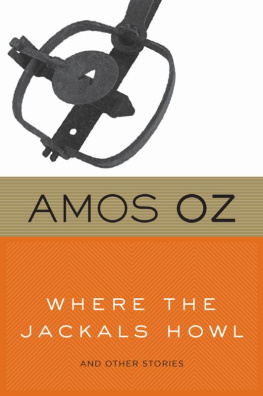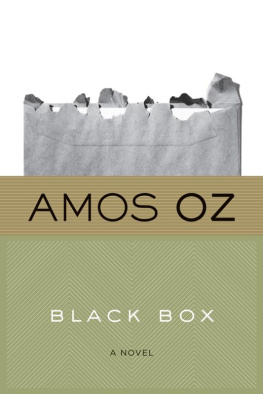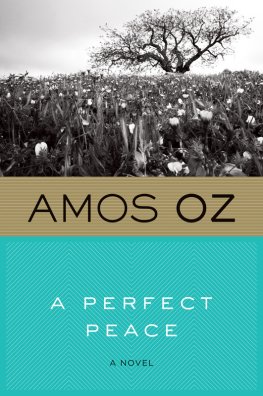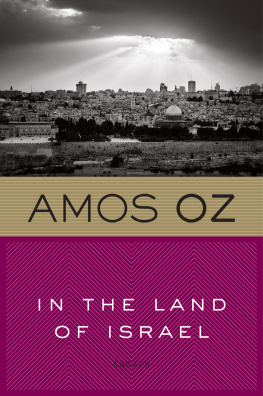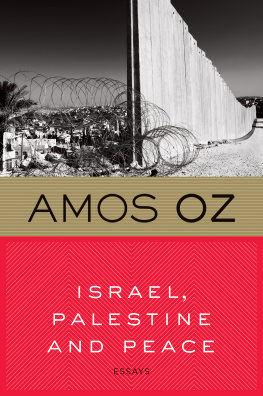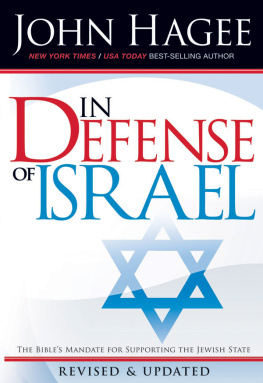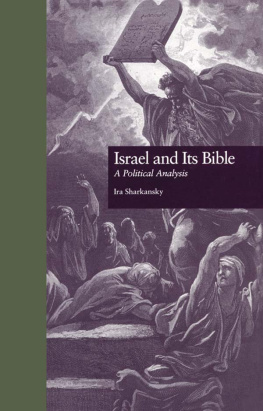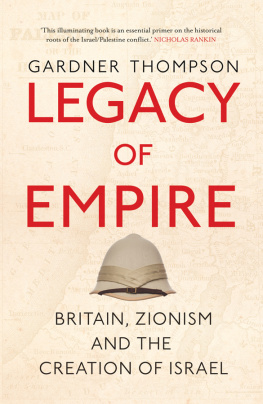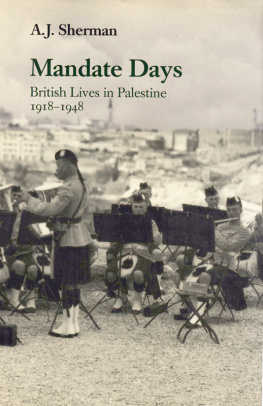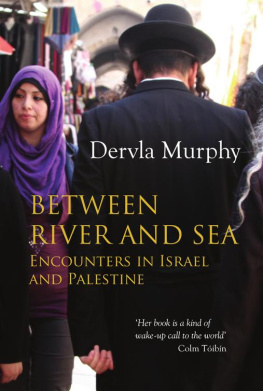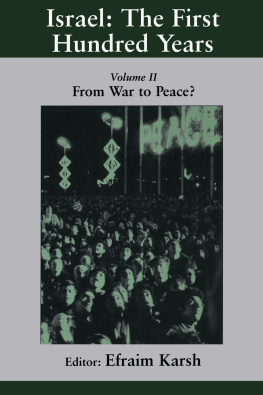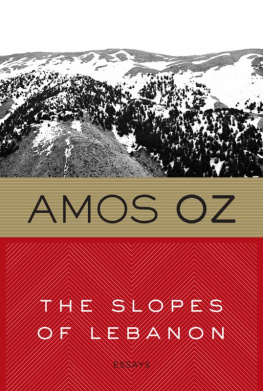Amos Oz
Panther in the Basement
The films mentioned in the text are fictional. Their titles, plots, and casts were invented by the author to conjure up the popular Hollywood films which were showing in Jerusalem in the late 1940s, and which he himself watched there as a child in the local cinema.
I have been called a traitor many times in my life. The first time was when I was twelve and a quarter and I lived in a neighborhood at the edge of Jerusalem. It was during the summer holidays, less than a year before the British left the country and the State of Israel was born out of the midst of war.
One morning these words appeared on the wall of our house, painted in thick black letters, just under the kitchen window: PROFI BOGED SHAFEL, "Proffy is a low-down traitor." The word shafel, "low-down," raised a question that still interests me now, as I sit and write this story: Is it possible for a traitor not to be low-down? If not, why did Chita Reznik (I recognized his writing) bother to add the word "low-down"? And if it is, under what circumstances is treachery not low-down?
I had had the nickname Proffy attached to me ever since I was so high. It was short for Professor, which they called me because of my obsession with checking words. (I still love words: I like collecting, arranging, shuffling, reversing, combining them. Rather the way people who love money do with coins and banknotes and people who love cards do with cards.)
My father saw the writing under the kitchen window when he went out to get the newspaper at half past six that morning. Over breakfast, while he was spreading raspberry jam on a slice of black bread, he suddenly plunged the knife into the jam jar almost up to the handle and said in his deliberate way:
"What a pleasant surprise! And what has his Lordship been up to now, that we should deserve this honor?"
My mother said:
"Don't nag him first thing in the morning. It's bad enough that he gets nagged by other children."
Father was dressed in khaki, like most men in our neighborhood in those days. He had the gestures and voice of a man who is definitely in the right. Dredging up a sticky mass of raspberry from the bottom of the jar and spreading an equal amount on both halves of his slice of bread, he said:
"The fact is that almost everyone nowadays uses the word 'traitor' too freely. But what is a traitor? Yes indeed. A man without honor. A man who secretly, behind your back, for the sake of some questionable advantage, helps the enemy to work against his people. Or to harm his family and friends. He is more despicable than a murderer. Finish your egg, please. I read in the paper that people are dying of hunger in Asia."
My mother pulled my plate toward her and finished my egg and the rest of my bread and jam, not because she was hungry, but for the sake of peace. She said:
"Anyone who loves isn't a traitor."
My mother addressed these words neither to me nor to Father: to judge by the direction she was looking, she was talking to a nail that was stuck in our kitchen wall just above the icebox and served no particular purpose.
After breakfast my parents hurried off to catch their bus to go to work. I was free, with oceans of time ahead of me till the evening, because it was the summer holidays. First of all I cleared the table and put everything away in its proper place, in the icebox, the cupboards, or the sink, because I loved being at home on my own all day without anything to do. I washed the dishes and left them upside down to drain dry. Then I went around the apartment closing the windows and shutters, so as to have a shady den till evening. The sun and the dust from the desert were liable to damage my father's books that lined the walls, some of which were rare volumes. I read the morning paper, then I folded it and put it on the kitchen table, and I put my mother's brooch away in its case. I did all this not like a repentant low-down traitor but from love of tidiness. To this day I make a habit of going around the house every morning and evening putting everything in its right place. Five minutes ago, as I was writing about closing the windows and shutters, I stopped writing because I remembered to get up and close the bathroom door; though it might have preferred to stay open, to judge by the groan it made as I closed it.
All that summer my mother and father went out at eight o'clock in the morning and came home at six in the evening. My lunch was waiting for me in the icebox and my days were clear as far as the horizon. For instance, I could start the game with a small group of five or ten soldiers on the rug, or pioneers, surveyors, road makers, and fort builders, and step by step we could tame the forces of nature, defeat enemies, conquer wide-open spaces, build towns and villages, and lay out roads connecting them.
My father was a proofreader and sort of editorial assistant in a small publishing house. At night he used to sit up till two or three o'clock in the morning, surrounded by the shadows of his bookshelves, with his body immersed in darkness and only his grey head floating in a ring of light from his desk lamp, as though he was laboriously climbing the gulley between the mountains of books piled up on his desk, filling slips and cards with notes in preparation for his great book on the history of the Jews in Poland. He was a principled, intense man, who was deeply committed to the concept of justice.
My mother, on the other hand, liked to raise her half-empty glass of tea and stare through it at the blue light in the window. And sometimes she would press it to her cheek, as though drawing warmth from the contact. She was a teacher in an institution for immigrant orphans who had managed to hide from the Nazis in monasteries or remote villages and had now reached us, as my mother said, "straight from the darkness of the valley of the shadow of death." At once she would correct herself: "They come from a place where men behave like wolves to each other. Even refugees. Even children." In my mind I would associate the remote villages with horrifying images of wolf-men and the darkness of the valley of the shadow of death. I loved the words "darkness" and "valley" because they immediately conjured up a valley shrouded in darkness, with monasteries and cellars. And I loved the shadow of death because I didn't understand it. If I whispered "shadow of death," I could almost hear a kind of deep, ghostly sound like the note that comes from the lowest key on the piano, a sound that draws after it a trail of dim echoes, as though a disaster has happened and now there is no going back.
I returned to the kitchen. I had read in the paper that we were living in a fateful period and therefore we must engage all our moral resources. And it also said that the actions of the British were casting a deep shadow, and that the Hebrew nation was called upon to withstand the test.
I left the house, looking all around me, as in the movies, to make sure no one was watching me: a strange man in sunglasses, for instance, who might be concealed behind a newspaper, lurking in the doorway of one of the buildings on the other side of the road. But the street seemed absorbed in its own preoccupations. The greengrocer was building a wall of empty crates. The boy who worked at the Sinopsky Brothers grocery was dragging a squeaking handcart. Childless old Pani Ostrowska was sweeping away at the walk in front of her door, probably for the third time that morning. Doctor Gryphius was sitting on her balcony filling out filing cards: she was a spinster, and Father was helping her to gather material for her memoirs of Jewish life in her native town of Rosenheim, in Bavaria. And the kerosene seller went by slowly in his cart, the reins lying slack on his knees, ringing a handbell and singing a plaintive Yiddish song to his horse. So I stood there and scrutinized intently the black words "PROFI BOGED SHAFEL," "Proffy is a low-down traitor," in case there was some tiny detail that could shed a new light. From haste or fear the last letter of the word "BOGED," "traitor," had turned out more like an R than a D, making me not a lowdowntraitor, BOGED, but a lowdownadult, BOGER. That morning I would gladly have given everything I had to be an adult.

